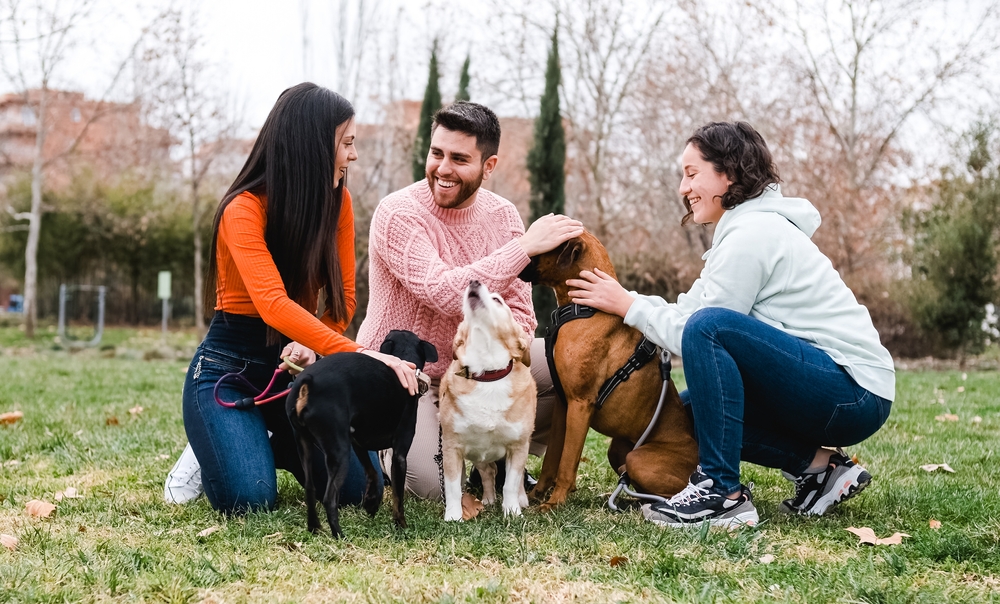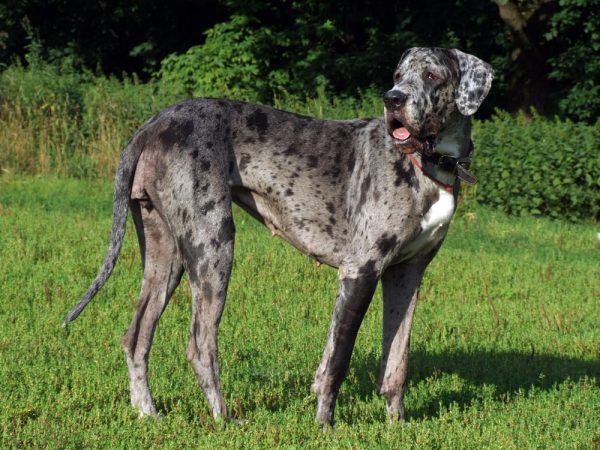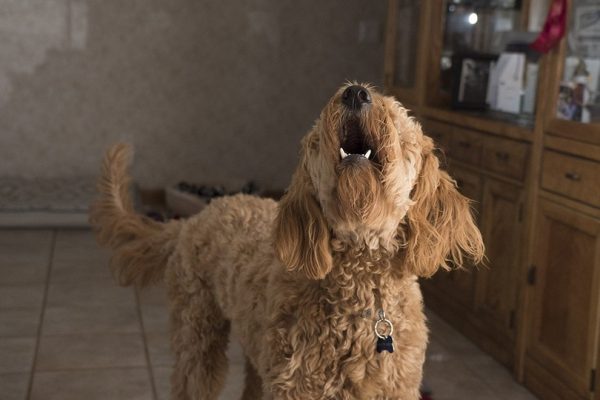In this article
View 3 More +A film from 1982, “White Dog,” featured a racist dog, which has caused people to wonder if this happens in real life. For humans, racism involves prejudice, discrimination, and/or antagonism directed against individuals of different races and ethnicities. Fortunately, dogs are not capable of these complex emotions, but keep reading as we discuss why some dogs may seem to prefer people of one race over another.

Socialization and Experience
A dog’s reaction to people of different races is rooted in their socialization and experience. A study from the Applied Animal Behaviour Science Journal shows that canines can develop a fear of unfamiliar things,1 including people who look different than those with whom they spend most of their time. Exposing the dog to as many strangers as possible, including those of other races, especially when they are 3–4 weeks old, can dramatically reduce the amount of fear that they feel around various people when they are older.
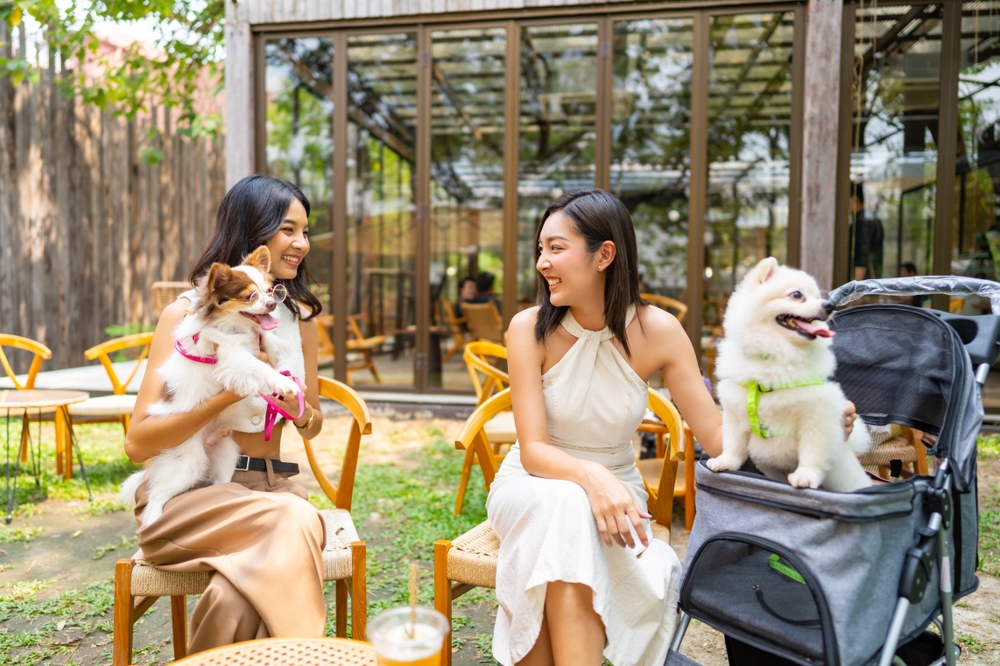
The Owner’s Behavior
While dogs don’t have the mental capability to be racist, studies show that if the owner is white, their dog may be less friendly toward Black people than other white people, and the same is true when the owner is Black in that their dog will often be less friendly toward white people.
Some scientists believe that whether we realize it or not, our dogs can pick up on our senses and feelings and act accordingly. Many studies have shown that dogs take on the personalities of their owners, so if an owner exhibits racist behaviors, there is a good chance that the dog will follow suit. Even if someone feels uncomfortable around a person of another race but doesn’t act any differently, their dog will still pick up on it and be less friendly toward them than someone whom they sense their owner is more comfortable around. They may even try to protect their owner, which some people might consider racist behavior.
Overcoming Prejudicial Behaviors
Proper training and socialization can help your pet overcome or prevent improper behaviors around people of another race and strangers in general. Positive reinforcement and gradual exposure to diverse groups of people will help a dog become more comfortable and reduce fearful or aggressive responses. It’s also important to work on yourself if you have issues regarding people of another race or feel uncomfortable around them to help prevent your dog from picking up on those issues.
- Expose your dog to various people of different races, ages, sizes, and genders from a young age.
- Use treats, praise, and play to reward your dog for calm and friendly behavior toward all strangers to help reinforce the idea that meeting new people is a good thing.
- Gradually introduce your dog to new people in controlled settings, especially if they are already adults, to help them adapt comfortably.
- Lead by example, and remain calm and friendly when meeting new people, especially those of another race.
- If your dog shows signs of fear or aggression toward certain people, consult with a professional dog trainer or a veterinary behaviorist to get advice specific to your pet.
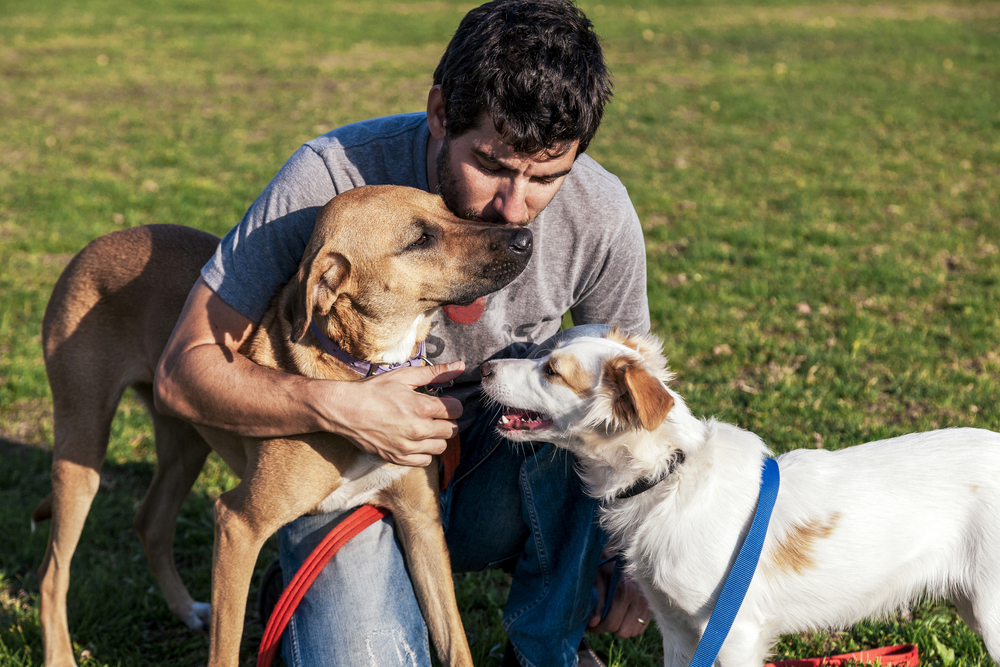

Frequently Asked Questions
Can Training Change a Dog’s Reaction to Different People?
Training can significantly influence a dog’s behavior and reactions. Consistent, positive exposure to a variety of people, accompanied by rewards for calm and friendly behavior, can teach your dog that strangers are not a threat.
How Can I Correct My Dog’s Behavior If They React Poorly to Certain People?
Stay calm, as your dog will look to you for cues on how to behave. Redirect your dog’s attention, and reward them with positive reinforcement when they remain calm. If all else fails, consider seeking help from a professional dog trainer or behaviorist.
Are Certain Breeds More Prone to Reacting Negatively to Strangers?
Some breeds are more naturally wary of strangers due to their original roles as guard dogs, like the Chow Chows, Shar Pei, Afghan Hounds, and many others. These dogs will need plenty of socialization and training to feel comfortable around other people, but it’s quite possible to accomplish.

Summary
Fortunately, dogs cannot be racist in the way that humans can because their brains don’t operate that way. However, they can be afraid of unfamiliar things, including people who look different from those whom they normally spend time with. A dog also pays close attention to their owner, and if they have issues with people of another race, even subconsciously, the dog may also feel uncomfortable around those people and may even become protective, which can make them appear racist.
Allowing your pet to spend as much time with people of other races as possible while they are still puppies can help them feel more comfortable around them as adults. If all else fails, contact a professional trainer or your vet for help specific to your dog.
Featured Image Credit: Daniel Megias, Shutterstock
